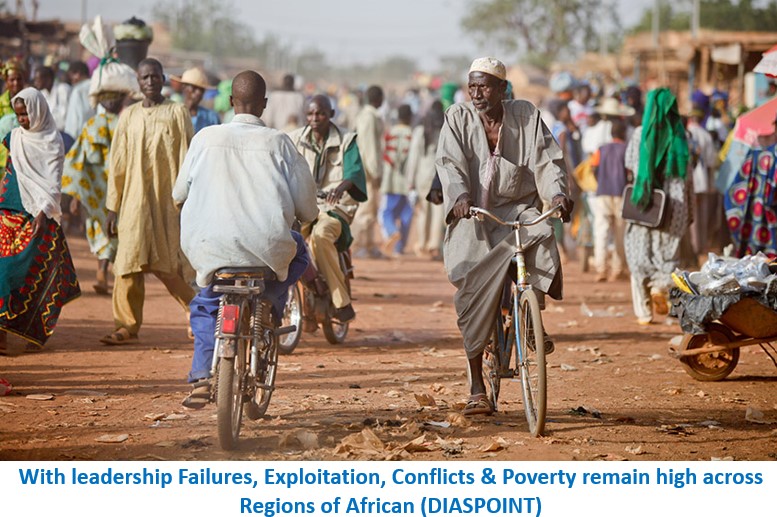What is driving violence in the Sahel?
Post By Diaspoint | July 16, 2023

The Sahel is one of the most troubled regions in the world and violence against local civilians is being fueled by non-state actors, writes Tope Akinyetun.
The Sahel, a region of Africa that includes Burkina Faso, Chad, Cameroon, Mali, Niger and Nigeria, has grown increasingly violent in recent years. In 2020, 4,660 people were killed in the region. Part of this is down to political instability and the presence of groups such as Boko Haram. But banditry accounted for over 2,600 civilian deaths in 2021 surpassing the numbers killed by more organised violent groups.
Drivers
The World Bank lists, as the indicators of governance, control of corruption, rule of law, political stability and absence of violence. All of which are challenges in the Sahel. Data from Transparency International shows that the Sahelian states are among the most corrupt in the world. Chad ranks 167 out of 180 countries, beaten, marginally, by Nigeria (150), Cameroon (142) and Mali (137).
The World Justice Project’s Rule of Law Index ranks Cameroon 134 among 140 countries with Nigeria 118, Mali 114 and Niger 109. The rankings are an indication of a weak adherence to the rule of law which leads to a lack of order and security.
Bad governance is another fundamental driver of armed conflicts, as individuals who are deprived of the benefits of governance are susceptible to recruitment for violence. Extremist groups take advantage of grievances fueled by marginalisation and exclusion. Poor governance enables societal ills such as militancy, terrorism and banditry to thrive. In Cameroon, the absence of order especially in the North West and South West regions is contributing to insurgency. The conflict between rebel groups and government forces in the Ambazonia region has led to the death of over 6,000 people.
Ungoverned spaces are poorly governed environments that lack state presence as a result of conflict. These areas in the Sahel, often characterised by vast forests, have become hideouts for criminal gangs and are used to promote an illegal economy and criminality. Such secluded and under-governed areas permeate the Sahel and offer refuge for criminal activities like terrorism and banditry. In Nigeria for example, the vast Sambisa, Falgore, and Ajjah forests have been used by Boko Haram insurgents and bandits as bases to coordinate and launch attacks. These areas have also been host to nefarious activities such as illegal mining, arms trading, and kidnaping. Terrorists have also occupied Park W which stretches across Niger, Burkina Faso and Benin. The park, a supposedly protected area of natural forest, has been abandoned by the governments of these countries and has been overrun by bandits, Jihadists and militants who now use it as a base.
Read More from original source
